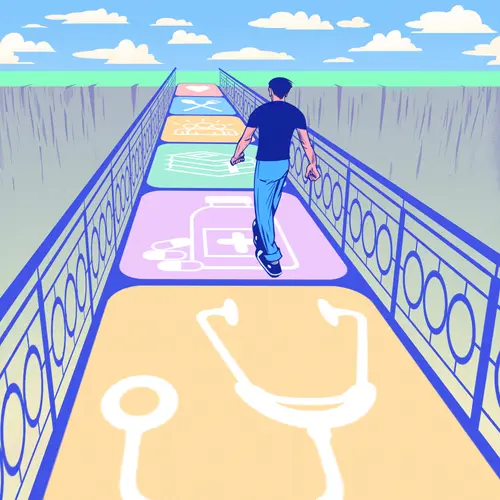Your heart rate gives a glimpse of your overall health and helps you spot potential health problems. You might think your heart ticks like clockwork, but how fast it beats changes throughout the day. It goes faster when you exercise or are nervous. It slows down when you’re relaxed or sitting still.
Your Resting Heart Rate
Also known as your pulse, this is the number of times your heart beats per minute when you're at rest. For adults, the normal range is between 60 and 100 beats per minute.
A resting heart rate varies from person to person. It depends on things like:
- Age
- Fitness
- Health conditions
- Medications
- Body size
Even emotions, temperature, and humidity outside can affect your pulse rate.
A lower resting heart rate is usually better when it comes to your health. It’s typically a sign your heart is working well. When it's lower, your heart pumps more blood with each contraction and easily keeps a regular beat.
On the flip side, a high resting heart rate may mean your heart works extra hard to pump blood. If your pulse is consistently more than 100 beats per minute at rest, it’s a good idea to see your doctor. Over time, a high resting heart rate may affect how your heart works. A high rate can also raise your chances of cardiovascular disease.
A slower than normal pulse is common in people who are physically fit. If your resting heart rate is regularly below 60 beats per minute but you’re not active, see your doctor, especially if you feel dizzy or short of breath.
How to Measure Your Heart Rate
The best time to measure your pulse is in the morning, before you get out of bed and before you've had your morning coffee or tea.
You can check your heart rate at your wrist. Lightly place your second and third fingers of one hand on the inside of your other wrist, below the base of your thumb. You should feel your pulse under your fingertips. Count the number of beats in one minute. Repeat to make sure you get a consistent reading.
Lowering Your Heart Rate
There are several ways you can do this to help your heart stay healthy:
Exercise. Physical activity strengthens your heart just like other muscles in your body. It trains your heart to be more efficient so it doesn’t work as hard when you’re at rest. A walk, bicycle ride, or yoga class can all help.
Quit smoking. Smoking causes your arteries and veins to get smaller. This can lead to a higher heart rate. Nixing tobacco products can bring your pulse down to a healthier level.
Relax. Stress can send hormones like adrenaline and cortisol racing through your blood, which can raise your heart rate. Things like meditation and yoga can help lower stress levels. Over the long term, they can lower your resting heart rate, too.
Eat more fish. A healthy diet is the cornerstone of heart health. In addition to fruits and vegetables, which are rich in vitamins and minerals, add fish to your menu. Eating it regularly can help lower your heart rate.
When Your Heart Rate Spikes
Sometimes, your pulse might jump up for a little while. Most of the time, your heart will slow down naturally. If not, or if it happens regularly, get medical help right away. A doctor may suggest one of the following.
Vagal maneuvers: These physical actions can reset your heart rate. For example, hold your nose and breathe out of your mouth. It’s similar to when you want to pop your ears when you’re on an airplane. Or you can put your face in ice-cold water for several seconds or cough forcefully.
Medication: Your doctor may prescribe it to help treat an abnormal heart rate. Things like beta-blockers may help prevent future episodes.
Pacemaker: This small device can sense a rapid heartbeat. When it does, it sends an electrical signal and helps the heart return to normal. Your doctor would implant it under your skin.
Catheter ablation: Sometimes the cause of your racing pulse may be an extra electrical pathway in the heart. Your doctor would perform this procedure, which makes it so the extra circuit no longer sends signals. It doesn’t require surgery. Usually, this is suggested only when medicines don't work.

